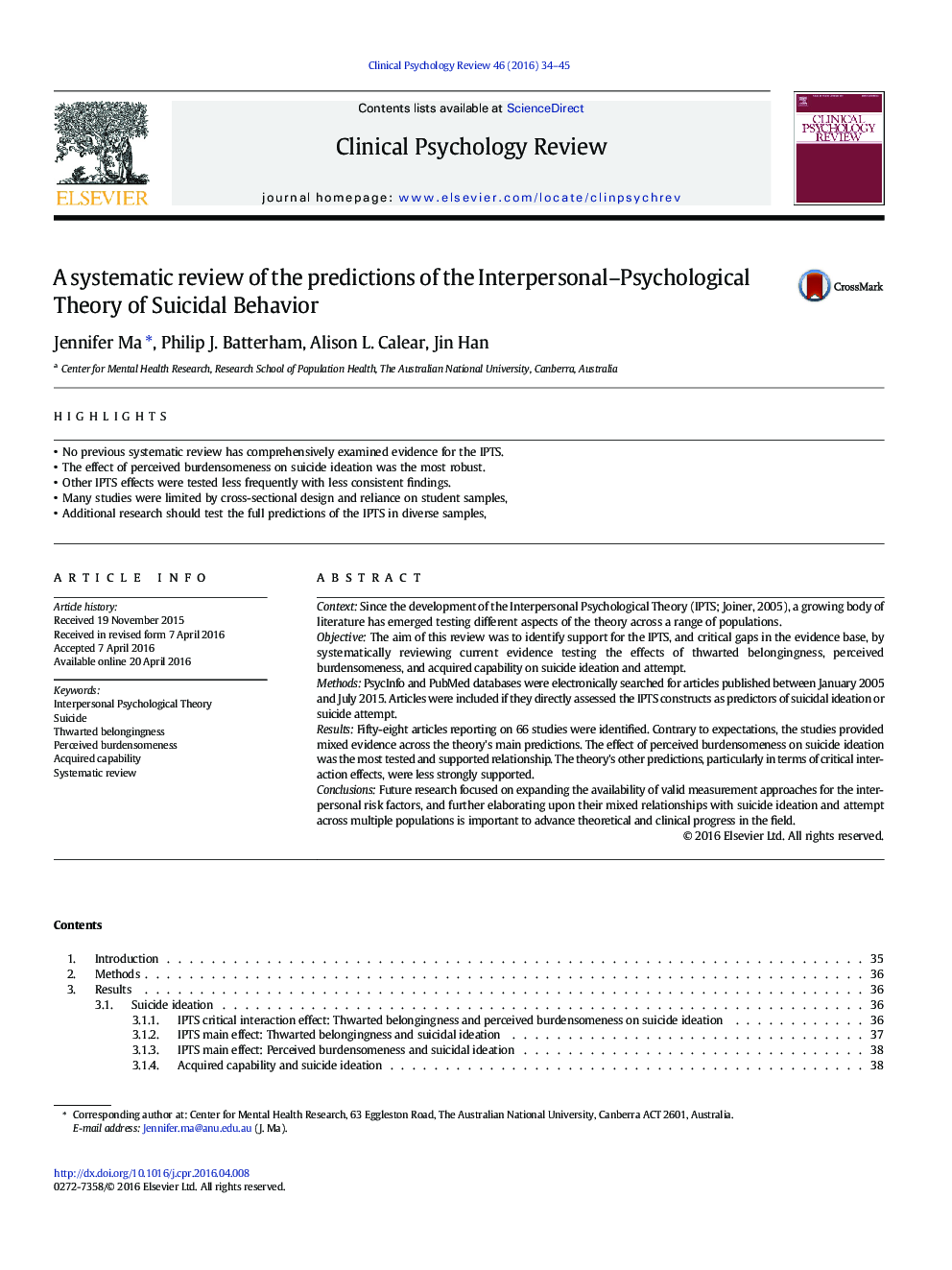| Article ID | Journal | Published Year | Pages | File Type |
|---|---|---|---|---|
| 903562 | Clinical Psychology Review | 2016 | 12 Pages |
•No previous systematic review has comprehensively examined evidence for the IPTS.•The effect of perceived burdensomeness on suicide ideation was the most robust.•Other IPTS effects were tested less frequently with less consistent findings.•Many studies were limited by cross-sectional design and reliance on student samples,•Additional research should test the full predictions of the IPTS in diverse samples,
ContextSince the development of the Interpersonal Psychological Theory (IPTS; Joiner, 2005), a growing body of literature has emerged testing different aspects of the theory across a range of populations.ObjectiveThe aim of this review was to identify support for the IPTS, and critical gaps in the evidence base, by systematically reviewing current evidence testing the effects of thwarted belongingness, perceived burdensomeness, and acquired capability on suicide ideation and attempt.MethodsPsycInfo and PubMed databases were electronically searched for articles published between January 2005 and July 2015. Articles were included if they directly assessed the IPTS constructs as predictors of suicidal ideation or suicide attempt.ResultsFifty-eight articles reporting on 66 studies were identified. Contrary to expectations, the studies provided mixed evidence across the theory's main predictions. The effect of perceived burdensomeness on suicide ideation was the most tested and supported relationship. The theory's other predictions, particularly in terms of critical interaction effects, were less strongly supported.ConclusionsFuture research focused on expanding the availability of valid measurement approaches for the interpersonal risk factors, and further elaborating upon their mixed relationships with suicide ideation and attempt across multiple populations is important to advance theoretical and clinical progress in the field.
